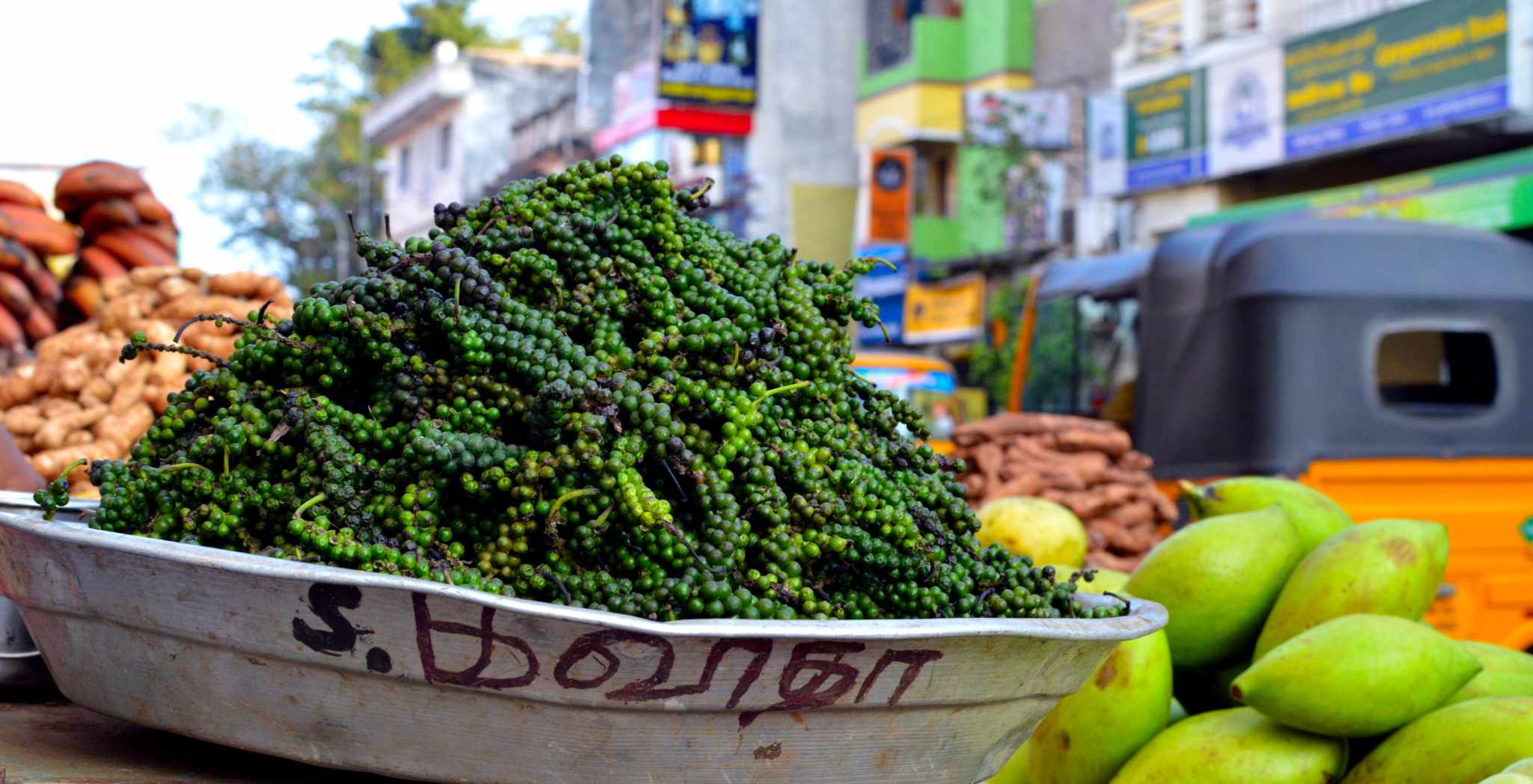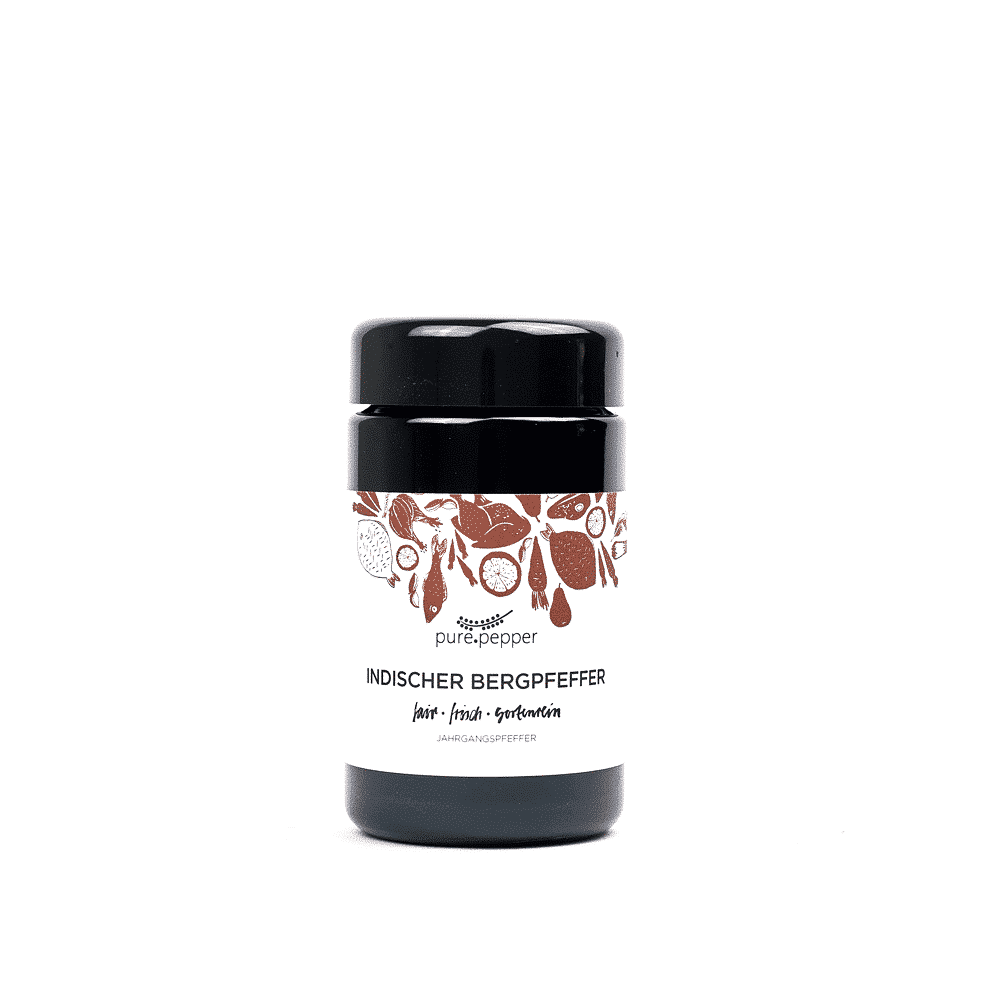
Indian pepper farm
Miss Pure Pepper on the go
I have found it: the most beautiful place where Indian pepper grows
In 2012, my search for THE Indian pepper for my online shop took me to the Western Ghats region, one of the highest rainfall zones in the Kodagu district of Karnataka. This is where I met Sujata. She and her husband have owned a pepper plantation for over 20 years. As biologists, they have made organic pepper cultivation their mission.
It was the kind of plantation I was looking for: the two live biodiversity. In addition to pepper, the farm also grows cardamom, coffee, vanilla and various fruits such as mango and pineapple. The pepper also grows on native trees such as Ficus religiosa, Shorea and Cinnamomum.
All these cultures and the good climatic conditions give the pepper its unique aroma and excellent quality.
My trip to India to find the best pepper.

This is how beautifully Indian pepper grows
The Indian pepper farm is managed by the two biologists based on nature's example. With the aim of finding a balance between proven practices and modern scientific approaches. By maintaining a forest-like crown and a dense ground cover of weeds between the plants and dense mulching, the sensitive topsoil is preserved. Fallow land and tanks are included in the cultivation areas. This creates new habitats for predatory species that keep pest populations under control. This is why ants, spiders, wasps, dragonflies, frogs, lizards, snakes and birds feel particularly comfortable on the plantation. And they contribute to the development of a diverse and healthy agricultural ecosystem. By growing different species multiple times, the farmers manage to prevent pest populations from building up.
In particular, the supplementary livestock farming provides valuable fertilizer (and urine), which is mixed with leaves, weeds and other biomass to produce compost. This cow dung is also processed in a biogas plant to create a rich liquid manure for fertilization. This means that the plants are fertilized exclusively with self-produced biomass. In addition, all organic waste is recycled and decomposed using bacterial cultures such as EM and returned to the natural cycle.

Real Nature
for unadulterated taste
The Indian pepper has beautiful brown and black berries with a fresh aroma. It also has an intense and pleasantly round spiciness and those special notes of lemon, lime, nutmeg and cardamom.
The pepper fruits are of course harvested by hand and air-dried in the sun at high temperatures. This gentle drying preserves the special aromas and makes this sustainable pepper particularly long-lasting.
What does Indian pepper go with?
Indian mountain pepper goes particularly well with chicken, fish, vegetables and wok dishes.













